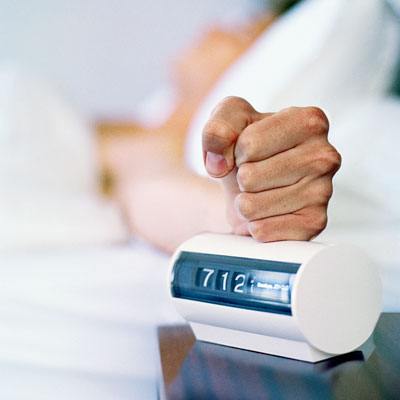Alarm clocks that work

No one loves an alarm clock. But if you've missed more than a few morning meetings, you may be ready for one you love to hate.
A money-shredding alarm clock might fit the bill: It shreds bills if you don't get up. Or how about one that dials random numbers, like your boss's, from your cell phone until you wake up? In truth, these are only design concepts. (Whew!)
Instead, consider one of these 10 real alarm clocks that use nightmarish methods to rouse—or at least seriously annoy—heavy sleepers.
A money-shredding alarm clock might fit the bill: It shreds bills if you don't get up. Or how about one that dials random numbers, like your boss's, from your cell phone until you wake up? In truth, these are only design concepts. (Whew!)
Instead, consider one of these 10 real alarm clocks that use nightmarish methods to rouse—or at least seriously annoy—heavy sleepers.
Wake Up, Work Out Alarm Clock
The last thing you may want to do is pump iron before breakfast. That's too bad, if you set this 1.5-pound dumbbell clock ($30; gadgetsandgear.com).
It will shut off only after you've done 30 bicep curls.
What's more, it has internal motion censors too—so you can't cheat!
It will shut off only after you've done 30 bicep curls.
What's more, it has internal motion censors too—so you can't cheat!


 . This one is hardly usable as a regular alarm clock. That is because
of the noisy fan in the computer, I will never get used to sleep with
the computer on
. This one is hardly usable as a regular alarm clock. That is because
of the noisy fan in the computer, I will never get used to sleep with
the computer on  . The digits are created from a bitmap taken by a digital camera (the
original bitmap from it was quite dirty (because of the JPEG lossy
compression)).
. The digits are created from a bitmap taken by a digital camera (the
original bitmap from it was quite dirty (because of the JPEG lossy
compression)).





